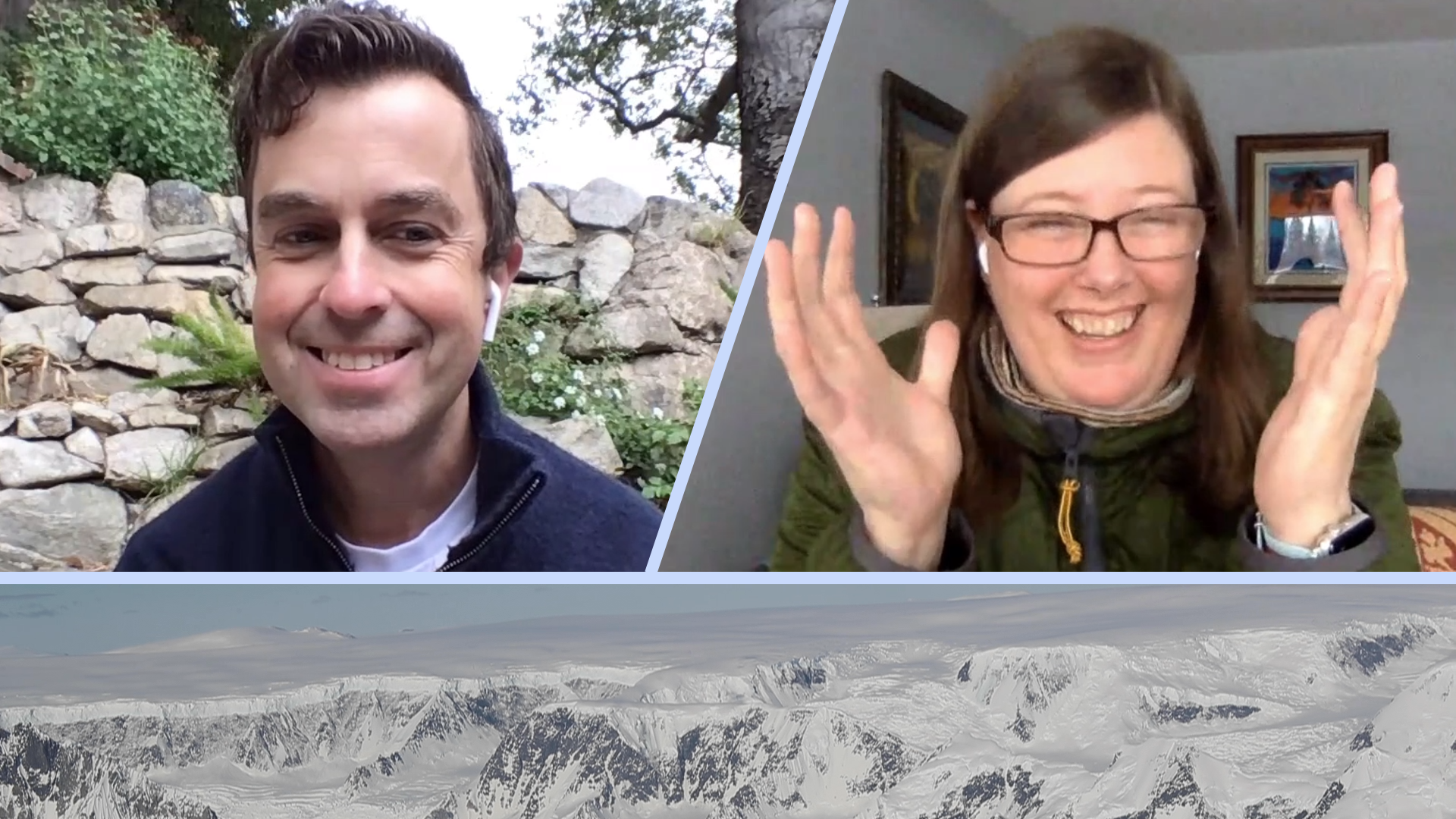The Reference Elevation Model of Antarctica (REMA)
This visualization explores the spatial resolution of the REMA data. The camera starts out at a global view of Antarctica before zooming into the Ross Archipelago region. RADARSAT DEM data is shown as the camera pushes in, showing the limits of the data resolution. A wipe transition reveals the REMA data, exposing additional details as the camera moves down towards the surface. Terrain is represented as a mesh to show the full resolution of the data. The camera flies up a valley, exploring the detailed REMA data. LIMA imagery is revealed at the end of the visualization.
This video is also available on our YouTube channel.
The Reference Elevation Model of Antarctica (REMA) provides the first, high resolution (8-meter) terrain map of nearly the entire continent.
REMA is constructed from hundreds of thousands of individual stereoscopic Digital Elevation Models (DEM) extracted from pairs of submeter (0.32 to 0.5 m) resolution DigitalGlobe satellite imagery, including data from WorldView-1, WorldView-2, and WorldView-3, and a small number from GeoEye-1, acquired between 2009 and 2017, with most collected in 2015 and 2016, over the austral summer seasons (mostly December to March).
Each individual DEM was vertically registered to satellite altimetry measurements from Cryosat-2 and ICESat, resulting in absolute uncertainties of less than 1 m over most of its area, and relative uncertainties of decimeters.
This visualization compares the spatial resolution of REMA with DEM data from RADARSAT.

High resolution still image of the Ross Archipelago region

High resolution still image of RADARSAT DEM

High resolution still image of REMA

High resolution still image of REMA

High resolution still image of REMA

High resolution still image of REMA (elevation) with LIMA (imagery)
360 (spherical) version of the visualization
This video is also available on our YouTube channel.
(Also embeded below)
Reference Elevation Model of Antarctica (REMA) in VR 360 Degrees
Note: The YouTube video above is an interactive 360 degree video. If you are viewing this video on your computer, click and drag in the window to change the camera view. If you are viewing this video on your phone or tablet, open the video in the YouTube video app and change the view by moving/rotating your device. This YouTube video is also compatible with Google Cardboard VR viewers.
Credits
Please give credit for this item to:
NASA's Scientific Visualization Studio
-
Visualizers
-
Kel Elkins
(USRA)
-
Greg Shirah
(NASA/GSFC)
- Lori Perkins (NASA/GSFC)
-
Kel Elkins
(USRA)
-
Scientist
- Paul Morin None (University of Minnesota)
Datasets used
-
REMA (Reference Elevation Model of Antarctica - 8m)
ID: 1037High resolution, time-stamped Digital Surface Model (DSM) of Antarctica at 8-meter spatial resolution
Credit: DEMs provided by the Byrd Polar and Climate Research Center and the Polar Geospatial. Computer time provided through a Blue Waters Innovation Initiative. DEMs produced using data from DigitalGlobe, Inc.
See all pages that use this dataset
Note: While we identify the data sets used on this page, we do not store any further details, nor the data sets themselves on our site.
Release date
This page was originally published on Friday, March 18, 2022.
This page was last updated on Sunday, February 2, 2025 at 10:28 PM EST.
